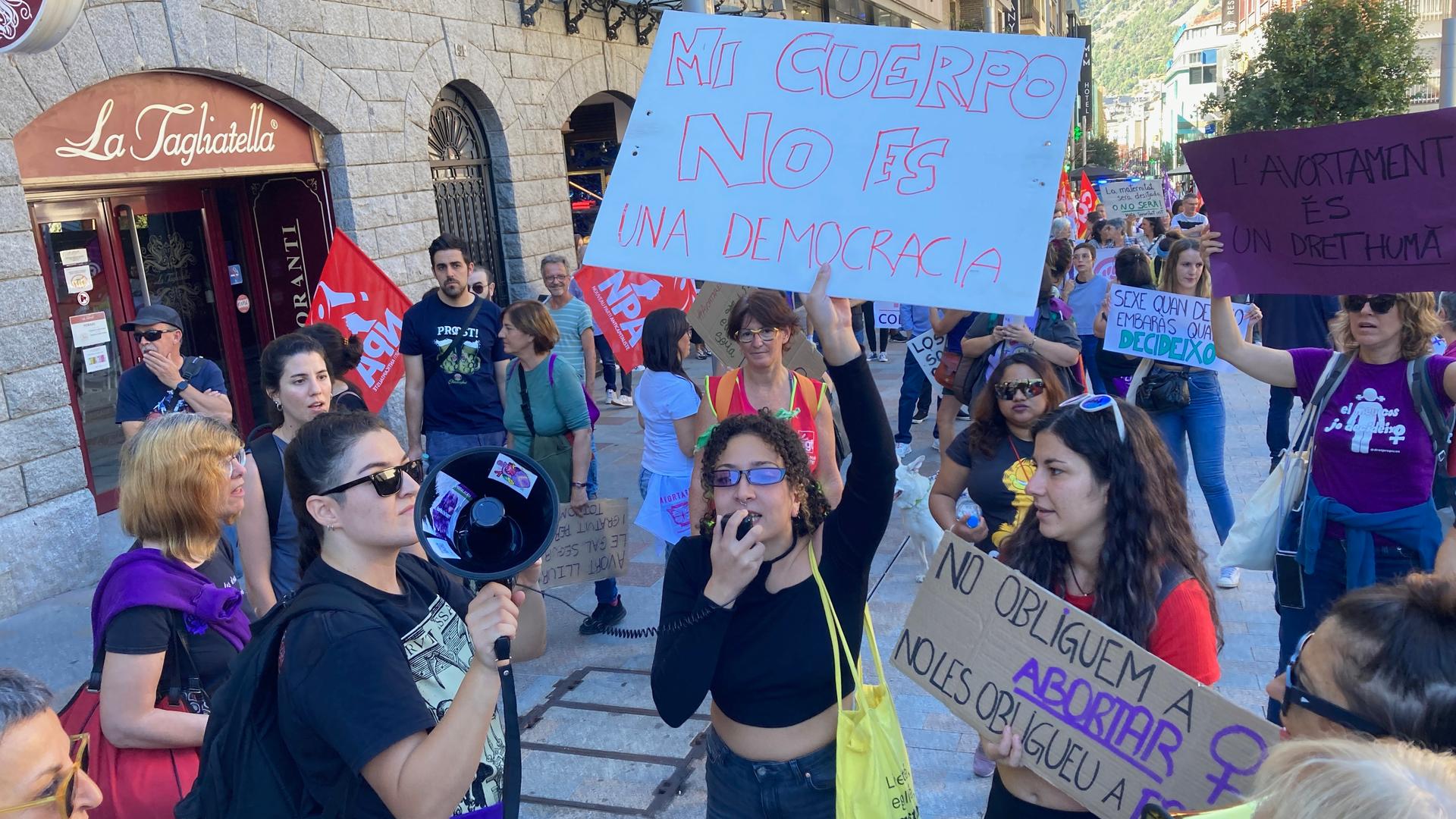The principality of Andorra, located in the Pyrenees mountains between Spain and France, is one of the smallest, least-populated countries in Europe.
It’s also the only one with a total ban on abortions. Not only are abortions in Andorra illegal, but also a taboo, said Sandra, an Andorran who asked for anonymity due to fear of public exposure.
Sandra said she was raised to believe that abortion was not an option for her, and she had an unplanned baby at the age of 19. Later, she had a second baby. But, a few years ago, when she got pregnant again, she knew she wouldn’t be able to support a third child by herself. She wanted an abortion, but it wasn’t possible in Andorra, she said, so she traveled three hours to a clinic in Barcelona.
It was a painful experience — and expensive — she said. Now, Sandra is adamant that abortions should be accessible and carried out in the best-possible conditions.
“You’re not going to stop someone from having an abortion by banning it,” she said. “You’re just going to make it worse.”
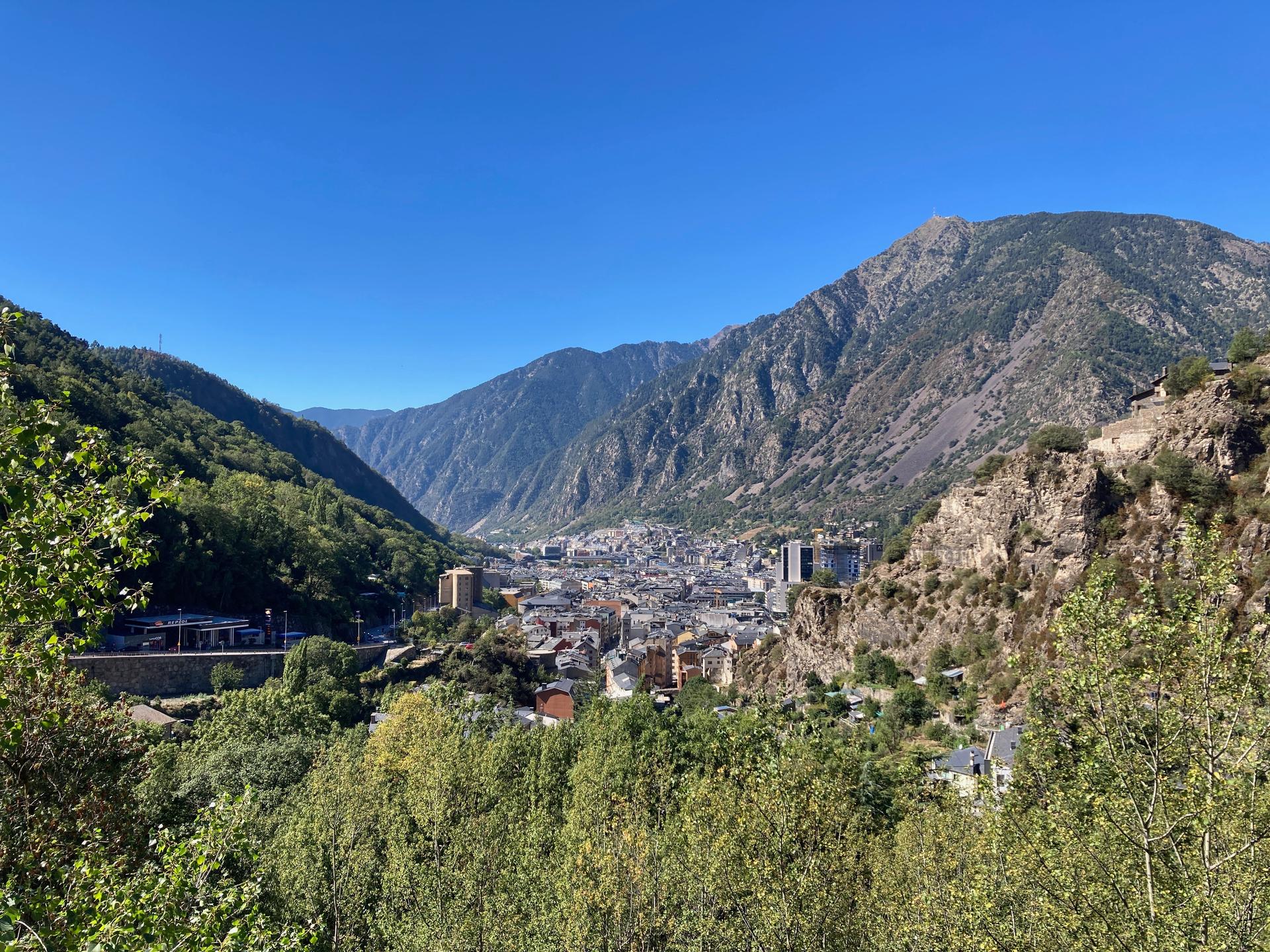
Andorra’s total ban on abortion is a result of the country’s unique system of governance. The microstate has a democratically elected government, but two princes also serve as heads of state — a constitutional arrangement rooted in a 13th-century feudal treaty. One co-prince is the president of France. The other is the bishop of the Roman Catholic Diocese of Urgell. The role of the co-princes is thought to be symbolic, but in practice, having a bishop as head-of-state has meant that abortions cannot be carried out in the country.
But today, some Andorrans are pushing for change. During the last weekend of September, a hundred people marked International Safe Abortion Day in Andorra la Vella, the capital of Andorra. They protested for being forced to travel abroad to terminate a pregnancy.
Even the government of Andorra admits that change is due. Andorra’s government’s minister of institutional relations, Ladislau Baró, said that just like elsewhere in Europe, Andorran society is becoming ever more secular, and a majority of people don’t agree with the abortion ban.
“Of course, we’re concerned. We’re aware of society’s demands,” he said, adding that the government, led by Prime Minister Xavier Espot, is discussing the matter with the Bishop of Urgell and even the Vatican.
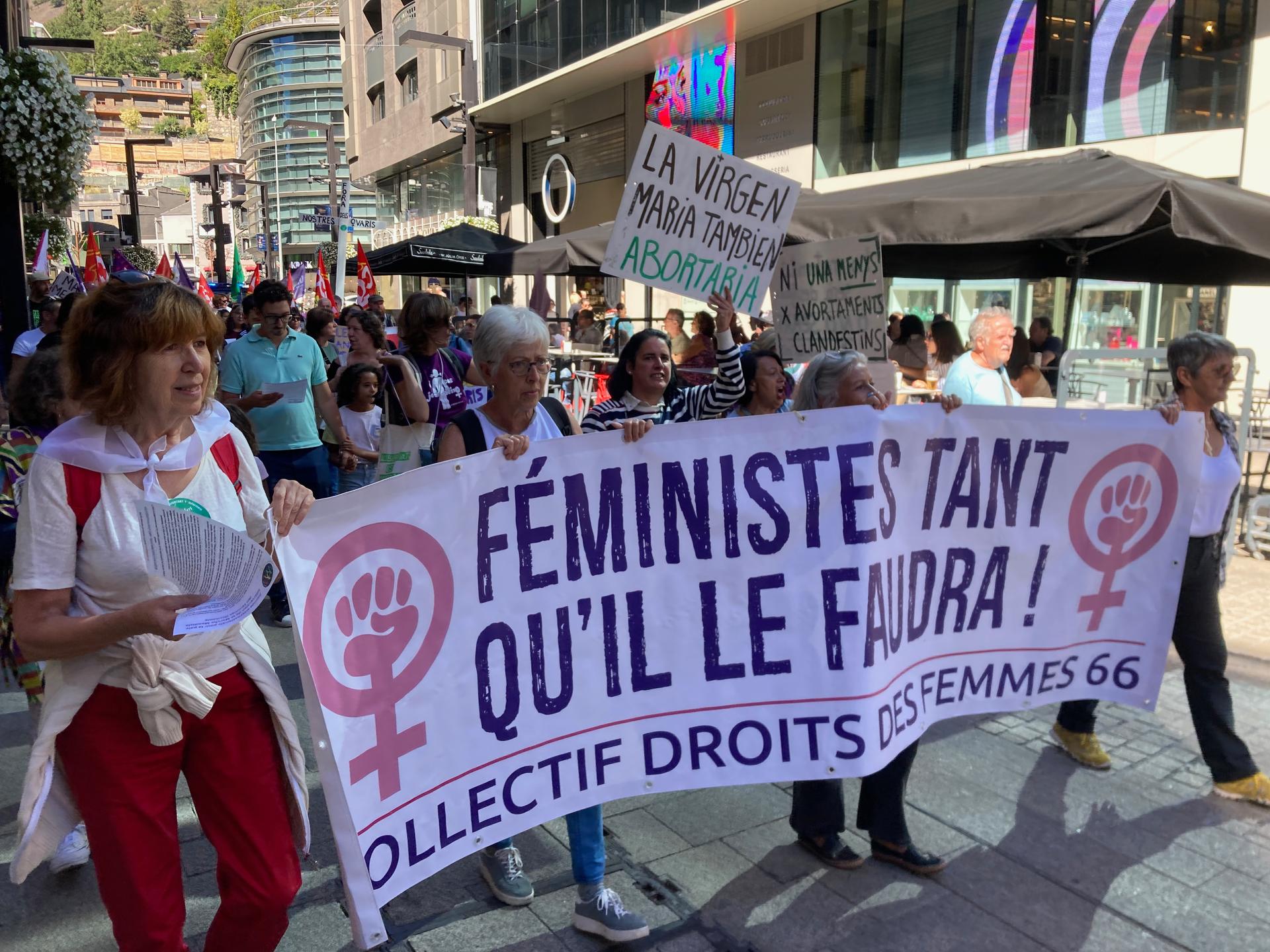
If abortion were legalized, the Holy See has warned, Bishop of Urgell Joan-Enric Vives would have to step down as prince of Andorra. This would cause a constitutional crisis and end a centuries-old tradition.
Vatican officials recently said they were open to finding a “satisfactory solution for everybody” but admitted it was “very complicated.”
Baró said the government is trying to find the balance between decriminalizing abortion and not authorizing it.
Thirty years ago, when Andorra passed its constitution, the right to life was enshrined in article 8 of the constitution and “fully protected on its different phases” to accommodate the bishop’s wishes. Additionally, Andorra’s criminal code prosecutes “consensual abortions,” with a penalty of arrest for the woman having an abortion and prison for those procuring it. Over the past decades, though, the crime of abortion has very rarely been enforced. (In 1987, a woman was arrested in Andorra for shooting herself in the womb.)
The government says it wants to abolish the crime and believes that abortions will still be prohibited, as per article 8 of the constitution. But Andorra’s Constitutional Court has never ruled on the matter, and some advocates want a different interpretation of article 8 — one that sees life as starting not at conception but in the later stages of the pregnancy.
Manuel Pujadas Domingo, who co-authored a report on the decriminalization of abortion in Andorra, said that decriminalizing abortion could amount to effectively authorizing it.
Yet, the government says it believes that authorizing abortions is incompatible with keeping the Bishop of Urgell as head of state — at least for now.
In March 2020, Andorra launched a reproductive health hotline, theSIAD. It provides free and confidential information including about abortion clinics abroad. Over a three-year period, 113 people contacted the service. About half of the cases were transferred to a gynecologist, and one got psychological assistance, according to government figures. The SIAD does not facilitate transportation or financial support to carry out an abortion abroad. But the government says it wants to expand SIAD’s services but didn’t confirm the details.
Activists step up
Stop Violències is a women’s rights and support group founded in Andorra by psychologist Vanessa Mendoza Cortés. The group provides support for abuse victims and, in the past few years, has also expanded to working on abortion access.
The turning point came in 2018, during a local fair where Stop Violències had a stand. A woman in a dire situation came asking for help.
“She was being abused and was pregnant after being raped. She wanted an abortion but had no money,” Mendoza Cortés said.
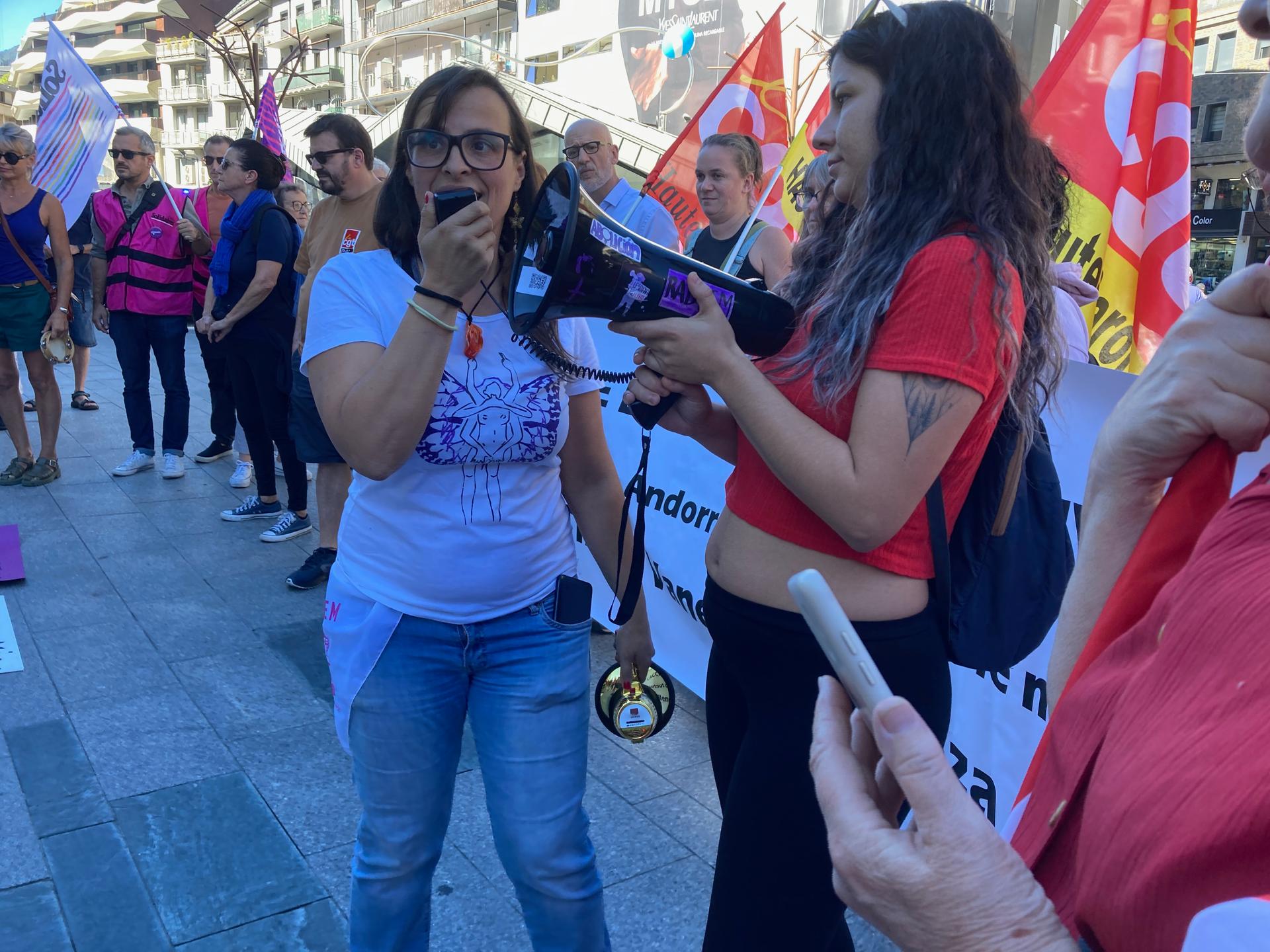
It was the first such case they encountered. They contacted reproductive health groups in Barcelona to find an abortion clinic. They got her on a bus, provided economic support and found someone to accompany her at all times.
This led to the formation of an informal abortion network in Andorra, in 2018, known asXarxa La Meri. Every year, they help about 50 women get abortions.
“We’ve been to an abortion clinic in Barcelona on a Saturday morning and found eight women from Andorra in the waiting room,” Mendoza Cortés said.
Over 100 women in Andorra have had abortions in public clinics in Catalonia every year since 2014, according to health authorities in the Spanish region.
But the numbers are hardly conclusive: Private clinics are not included, and there are no figures for abortions carried out in France.
Mendoza Cortés estimates that it’s in the hundreds or even thousands of women who leave the country to have an abortion every year.
She helped galvanize the abortion rights movement in Andorra and has become a vocal critic. She said that institutions are failing to protect women. But her outspokenness has had repercussions.
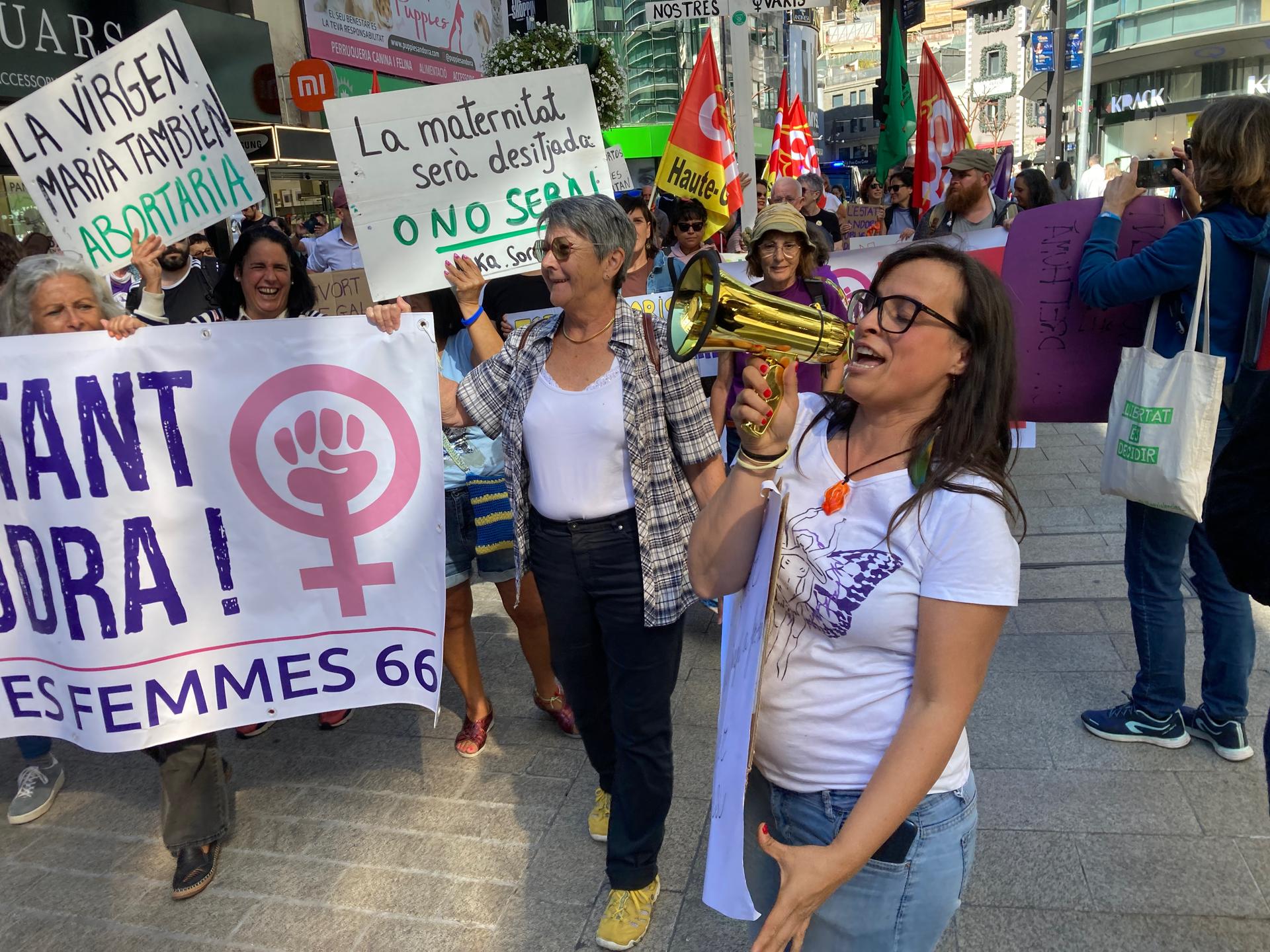
On Dec. 4, Mendoza Cortés will face a defamation trial in Andorra for criticizing the country before the United Nations Committee on the Elimination of Discrimination against Women back in 2019. She faces a fine of about $12,740.
“When the government reported me in 2019, I wanted to hide under a stone and disappear,” she said.
Instead, she doubled down and became even more visible.
The Andorran government maintains that Mendoza is not being prosecuted for her activism but for making false accusations. Human rights groups, though, likeAmnesty and theUnited Nations, call the charges disproportionate.
The case has further exposed Andorra’s conflicted approach toward abortion.
Meanwhile, Andorrans continue to travel abroad to end a pregnancy — but some are getting tired of waiting for things to change.
Nayray Busquets was born and raised in Andorra. She has long been fed up with the cost of living and the lack of opportunities. But this year, having to travel out of her country for an abortion was a tipping point.
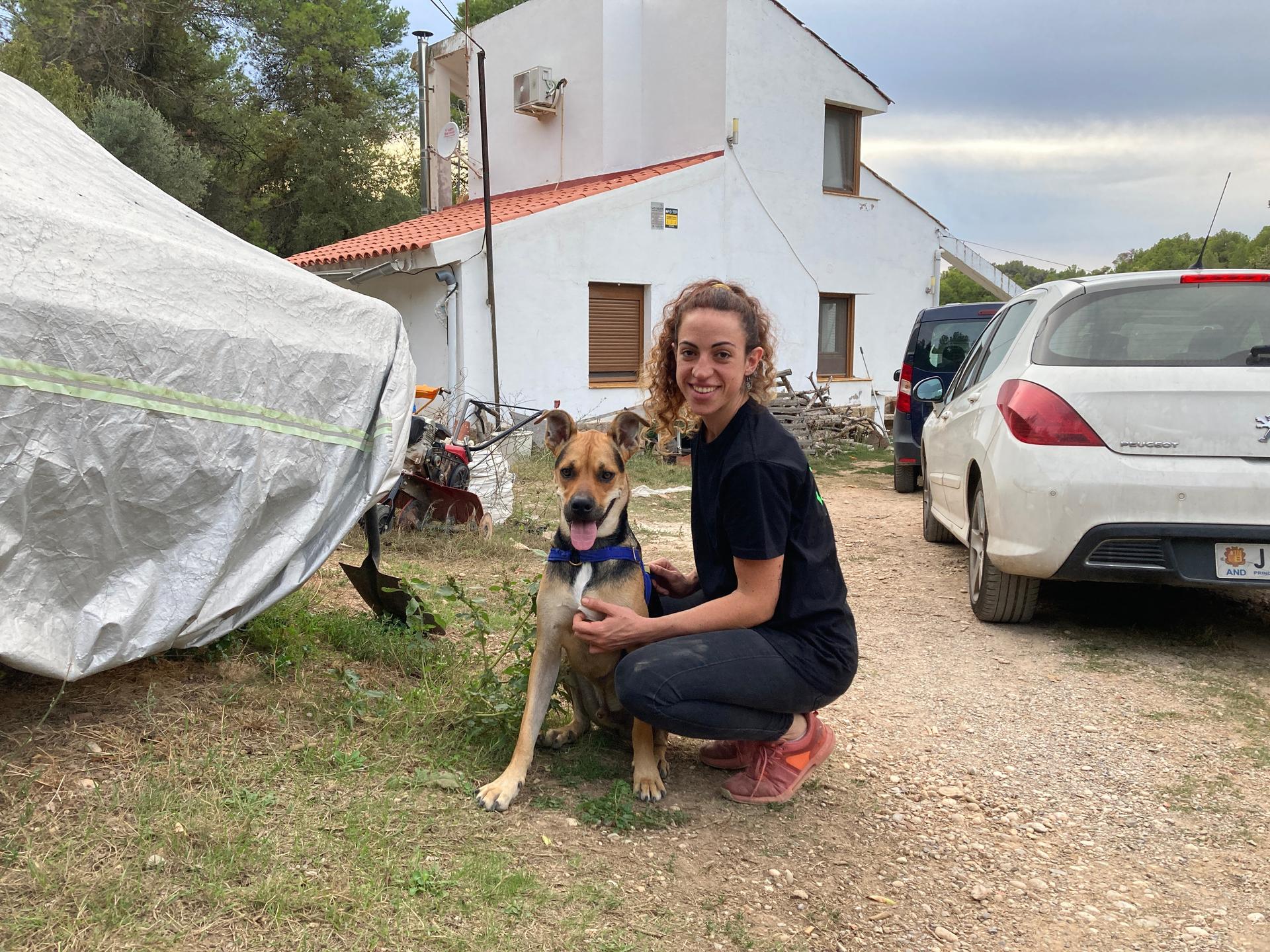
“It’s so unfair,” she said. “What you’re going through is hard enough, and on top of that, you’re forced to do it far from home.”
A few months ago, Busquets left Andorra for good and moved to a tiny village in Catalonia.
Back in Andorra, many people still don’t know she had an abortion. She said she feels that Andorra hasn’t changed at all since she was born.
“I hope things do change someday,” she said. “I would feel proud and thankful.”
Our coverage reaches millions each week, but only a small fraction of listeners contribute to sustain our program. We still need 224 more people to donate $100 or $10/monthly to unlock our $67,000 match. Will you help us get there today?
